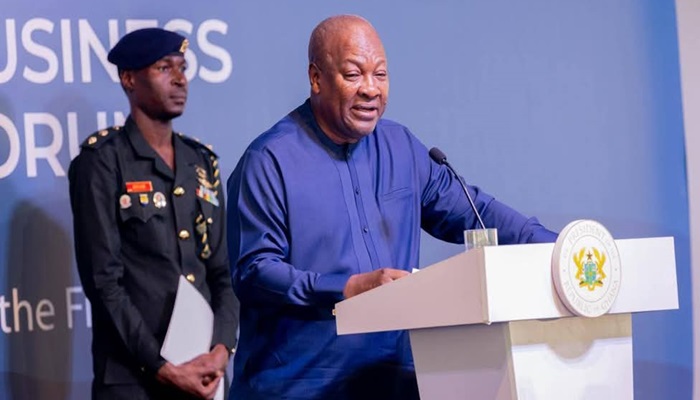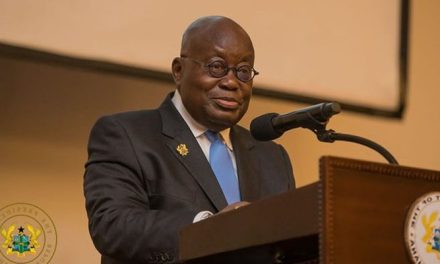President John Mahama has laid out a transformative roadmap for the future of business in Ghana — one that is digital, green, inclusive, and entrepreneur-led.
At the heart of his strategy is the 24-Hour Economy plan, which aims to create enabling conditions for continuous business operations through reliable electricity, security, and digital infrastructure.
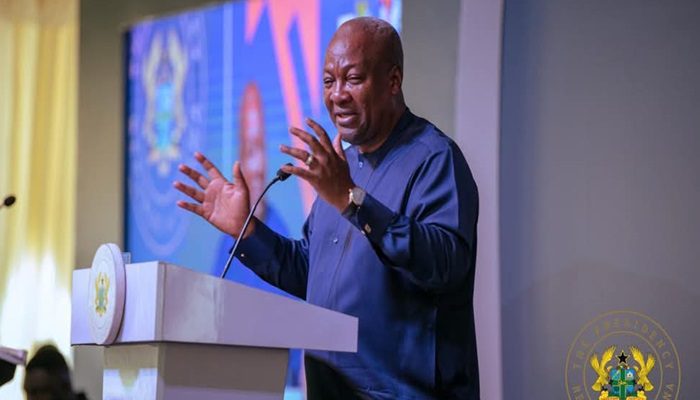
Concrete commitments for business reform
Beyond rhetoric, the President announced concrete steps, including the establishment of a national venture capital fund, expansion of affordable financing through the Ghana Development Bank and a proposed Women’s Development Bank, the creation of an Indigenous Business Advisory Council to institutionalize business-focused ideas from the Forum, and prioritized investment in agro-processing, ICT, tourism, and renewable energy sectors.
Building trust, transparency, and resilience
President Mahama acknowledged the tough terrain Ghanaian businesses have navigated in recent years — inflation, debt, and low investor confidence. But he expressed optimism: “We are turning a corner.
Inflation is gradually easing, and we are restoring macroeconomic stability. But recovery is not enough. We must transform.”
To support this transformation, his administration is also committing to cutting bureaucratic red tape, strengthening the rule of law, and promoting a corruption-free public service that treats the private sector as a development partner.
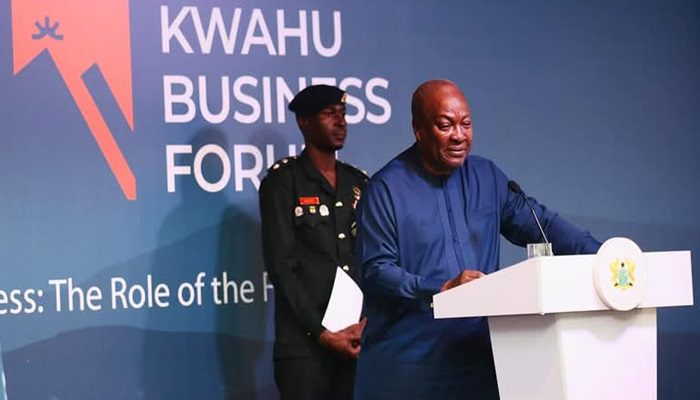
National debate on finance and enterprise
The second edition of the Kwahu Business Forum has reignited a national conversation on how Ghana’s financial sector can play a more catalytic role in transforming indigenous enterprises.
With impassioned pleas from business owners, industry leaders, and top government officials, the call for reduced interest rates, flexible loan conditions, and tailored financial products took center stage — signaling a renewed push to unlock the full potential of local businesses.
Held under the theme “The Future of Business: The Role of the Financial Sector,” the Forum assembled a cross-section of stakeholders from across Ghana’s economic spectrum.
Their common concern is that the cost of borrowing remains prohibitively high, choking the growth of the very businesses that form the backbone of the economy.
Interest Rates: A barrier to local business growth
Participants at the Forum didn’t mince words in describing the challenges posed by the financial sector’s current lending practices.
From Abossey Okai to the automobile sector, speakers highlighted how exorbitant interest rates and excessive collateral demands have become twin obstacles stalling indigenous business growth.
Mr. Eric Kwaku Boateng, President of the Ghana Automobile Dealers Association, was direct in his critique: “High interest rates on loans deter businesses from accessing facilities to support their ventures. Many of us cannot meet the collateral requirements, and it’s killing local enterprise.”
Echoing these sentiments, Mr. Sampson Asaki Awingobit, Executive Secretary of the Importers and Exporters Association of Ghana, advocated for tailored financial solutions.
“Access to finance must be structured to suit the needs of SMEs. We also need improved marketplaces and stronger support for importers and exporters,” he added.
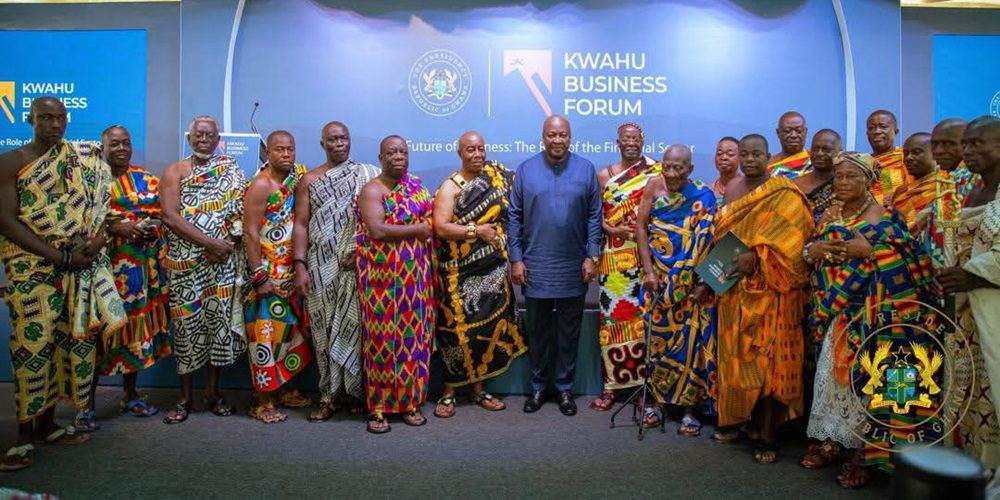
The call for govt action
The business community’s concerns did not fall on deaf ears. President Mahama, who officially opened the Forum, made sweeping commitments aimed at reengineering Ghana’s financial landscape to serve its local entrepreneurs.
“We will reduce the cost of borrowing by reforming credit systems and supporting blended finance instruments,” the President announced.
“We will also launch a national venture capital fund to support youth- and women-led businesses, and introduce regulatory reforms that encourage lending to productive sectors.”
He emphasized that financial inclusion would be the cornerstone of his administration’s strategy, noting that no economy can grow when its people are excluded from formal financial systems.
Structural support for indigenous businesses
Several entrepreneurs at the Forum highlighted the need for implementation, not just promises.
Madam Eunice Ohui Hlordjison, CEO of Ephphatha Ghana Limited, called on government and financial institutions to introduce practical, accessible financial products for young graduates and start-ups.
“Many of our young people are ready to start businesses but cannot access capital. If we don’t change the business environment, we are killing the next generation of entrepreneurs,” she said.
Mr. Takyi Addo of the Abossey Okai Spare Parts Dealers echoed concerns about the macroeconomic environment, urging government to tackle high import duties and stabilize the cedi. “Interest rates alone are not the issue. When combined with currency depreciation and taxes, businesses have no breathing space,” he stated.
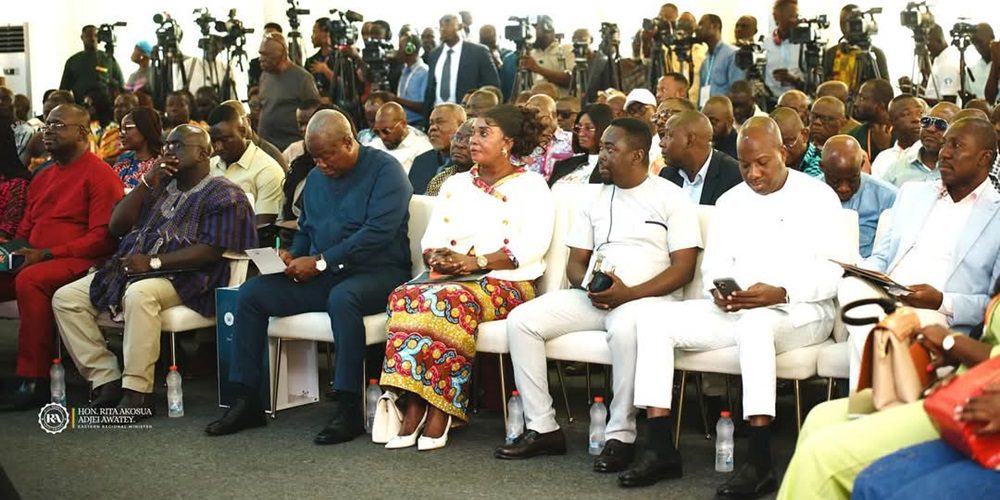
Ensuring follow-through and decentralizing innovation
Chief of Staff Julius Debrah, delivering the Forum’s closing remarks on behalf of the President, reaffirmed the administration’s determination to walk the talk.
“President Mahama wants to be remembered as the leader who invited businesses to the table, listened, and acted. He has appointed Mr. Seth Terkper, Presidential Advisor on the Economy, to oversee the implementation of the Forum’s outcomes,” Debrah said.
“Innovation must no longer be confined to Accra or Kumasi. Communities like Mpraeso, Nkawkaw, and Abetifi should become hubs of enterprise,” he said, stressing that entrepreneurship must be decentralized to truly uplift the nation.
To that end, a Jobs and Skills Compact will be launched, bringing together government, academia, and the private sector to align education with market needs.
A forum with a mission
More than just another business event, the Kwahu Business Forum has emerged as a rallying point for economic renewal.
Its national character and inclusivity — open to both local and foreign participants — ensure that it becomes a crucible for ideas, partnerships, and action.
Akyemfour Asiedu Agyemang III, Kwahu Abetifihene, summed it up in a heartfelt appeal: “Let this Forum not be a one-time conversation. Let it be a continuous platform that empowers Kwahu and Ghanaian businesses.”
In a final charge, President Mahama declared, “Let us work together to build a Ghana that is competitive, productive, and inclusive. A Ghana that creates opportunity for all.”
As the Forum concluded, the message was unmistakable: Ghana’s future lies in empowering its own — and that begins with affordable credit, inclusive finance, and bold leadership. The time to act is now.

